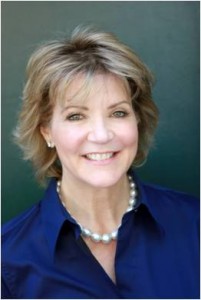By Doug Stephens
Most marketers are all too familiar with what has become an overly simplistic consumer segment profile of Generation Y. They are often broadly described as a large segment of 9-29 year old, tech savvy, voracious spenders with high ideals and expectations of the retail brands they shop.
But how much of what we think we know about Gen Y is born out of pre-recession realities that no longer exist? In the cold light of a post-recession day, does the post-crisis Gen Y consumer bear any similarity to the one that’s become stereotyped in North American marketing circles? Moreoever, what do retailers need to understand about this generation to successfully win their attention and loyalty as they move into their prime consumption years?
To help answer these questions, I spoke with Kit Yarrow PhD, professor of psychology and marketing at Golden Gate University and co-author of the acclaimed book, Gen BuY: How Tweens, Teens and Twenty-Somethings are Revolutionizing Retail. Kit is widely recognized as a leading authority on consumer psychology and Generation Y.
**********************************************************************************************************************************
Retail Prophet: Throughout the the last decade we heard a lot about Gen Y’s spending patterns; specifically that they were spending at a rate up to 500 percent greater than their parents in adjusted dollars. What impact has the recession had on Gen Y spending patterns?
Kit Yarrow: They’ve cut back – but not as much as older generations. It makes sense when you consider that Gen Y had less and so lost less during the recession. They’re also highly optimistic about their earning potential and consequently less cautious when it comes to spending. This generation was trained by their parents to have high expectations. Lastly, Gen Y “wants” feel a lot like “needs,” especially when it comes to technology. In contrast to older generations, they’re spending less because they have less to spend, not because they have a new attitude about spending.
However, although they haven’t adopted the frugal mindset of older generations, they have learned new ways of shopping. They’re definitely less impulsive and more interested in cheap thrills and sales promotions than they were pre-recession.
Retail Prophet: The silent generation’s consumer behavior was to some extent a product of the Great Depression. Consequently they became known as a generation of savers. What long-term effects do you see this recession having on Gen Y’s consumer tendencies?
Kit Yarrow: Gen Y is more knowledgeable about personal finance issues and money management as a result of the recession. I think parents are doing a better job of preparing their kids for financial independence. Gen Y has not been psychologically damaged by the recession in the same way that Depression Babies were. Not even close. I’ve heard more Gen Y’s scoff at the futility of saving than I have those who have stopped spending (though neither extreme is the norm).
Retail Prophet: From your research, what would you say are the most significant changes or adjustments retail businesses need to make in order to appeal to Generation Y customers and secure their loyalty in the decade ahead?
Kit Yarrow: It’s essential to get Gen Y involved. They’re willing to advise and champion retailers. Why not take them up on it? The key is to acknowledge and reward their involvement – a little courtship is required. Secondly, I think communication has to be more visual, symbolic and intuitive. Honestly, transparency, humor and humanness go a long way too. There also needs to be more activity, product turnover and sensory involvement than what satisfied previous generations. Lastly, it makes sense to rethink absolutely everything with a nod toward what’s technically possible today.
Retail Prophet: Certain marketing messages resonate with specific generations. For time-compressed Baby Boomers for example, “convenience” became a key driver. Are there any particular messages you think resonate particularly well with the Gen Y consumer?
Kit Yarrow: This is the generation that always gets their say, but isn’t always heard. There are multiple ways to get your point out there – and the result is lots of talking, not so much listening. What Gen Y craves is to be seen and heard. Status is no longer about money, it’s about influence. Therefore the messages that resonate with Gen Y are those that champion the customer. Listen, respond, notice and reward – that’s where it’s at.
Retail Prophet: We’ve all heard the statistics about the disproportionate channel growth of e-commerce compared to bricks and mortar retail. Are there any indications from your research about Gen Y’s attitude towards shopping online versus visiting a physical store location? Will bricks and mortar retail suffer under a Gen Y consumer?
Kit Yarrow: There really has to be a complete integration now. Gen Y’s shop in stores with Internet information and apps that allow them to compare and share at their fingertips. Gen Y views online and physical location retail as equally valuable and somewhat seamless. After all, virtual is more tangible to Gen Y than to older generations.
They prize online capabilities like crowdsourcing, customization and most importantly their ability to learn and share with others. At the same time, according to my survey, Gen Y also enjoys shopping in stores more than any other generation. The smart retailers today are really looking for ways to enhance both experiences and their retail brand by bringing more online capabilities into the store and putting more of the store experience online.
*************************************************************************************************************************************
Kit Yarrow, Ph.D. is a professor of psychology and marketing at Golden Gate University and their 2009 Outstanding Scholar. Her book, Gen BuY: How Tweens, Teens and Twenty-Somethings are Revolutionizing Retail (Wiley, 2009), was described by Publisher’s Weekly as “a must-read for all who hope to keep their companies relevant and viable.”
was described by Publisher’s Weekly as “a must-read for all who hope to keep their companies relevant and viable.”
Kit has given talks on Gen Y, the psychology of consumers and insight-driven marketing to organizations such as Stanford, The Commonwealth Club, Cisco and Vogue. And she’s consulted to businesses including General Electric, Del Monte, AAA and Nokia.

